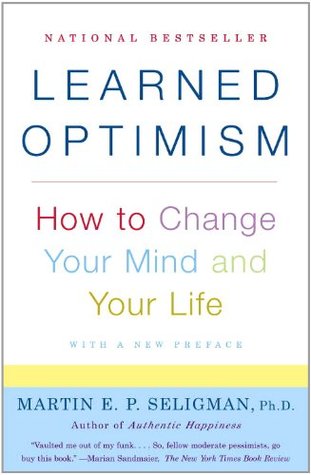More on this book
Community
Kindle Notes & Highlights
the first is that, in general, depression is a disorder of the “I,” failing in your own eyes relative to your goals.
In a society in which
individualism is becoming rampant, people more and more believe that they are the center of the world. Such a belief system makes in...
This highlight has been truncated due to consecutive passage length restrictions.
Twenty-five years ago (as it was during the time of the Great Depression), the emblematic children’s book was The Little Engine That Could. It is about doing well in the world, about persisting and therefore overcoming obstacles. Now many children’s books are about feeling good, having high self-esteem, and exuding confidence.
In these studies we select children for two risk factors: one is mild symptoms of depression, and the other is their parents’ fighting a lot. Each of these factors predicts depression in young children.
The defining characteristic of pessimists is that they tend to believe bad events will last a long time, will undermine everything they do, and are their own fault.
They tend to believe defeat is just a temporary setback, that its causes are confined to this one case. The optimists believe defeat is not their fault: Circumstances, bad luck, or other people brought it about.
Literally hundreds of studies show that pessimists give up more easily and get depressed more often. These experiments also show that optimists do much better in school and college, at work and on the playing field.
Tests reveal traces of pessimism in the speech of people who would never think of themselves as pessimists; they also show that these traces are sensed by others, who react negatively to the speakers.
It will also introduce you to the techniques that have helped thousands of people undo lifelong habits of pessimism and its extension, depression. It will give you the choice of looking at your setbacks in a new light. The Unclaimed Territory AT THE CORE of the phenomenon of pessimism is another
But twenty-five years of study has convinced me that if we habitually believe, as does the pessimist, that misfortune is our fault, is enduring, and will undermine everything we do, more of it will befall us than if we believe otherwise. I am also convinced that if we are in the grip of this view, we will get depressed easily, we will accomplish less than our potential, and we will even get physically sick more often. Pessimistic prophecies are self-fulfilling. A poignant example
careful research shows that people with pessimistic habits of thinking can transform mere setbacks into disasters.
One way they do this is by converting their own innocence
into ...
This highlight has been truncated due to consecutive passage length restrictions.
Habits of thinking need not be forever. One of the most significant findings in psychology in the
last twenty years is that individuals can choose the way they think.
Although many thousands of patients have had hundreds of thousands of sessions, psychoanalytic therapy has not been demonstrated to work for depression.
The other, more acceptable view of depression is biomedical. Depression, say the biological psychiatrists, is an illness of the body. It comes from an inherited biochemical defect—sited, perhaps, on an arm of chromosome number 11—that produces an imbalance of brain chemicals. Biological psychiatrists treat depression with drugs or electroconvulsive therapy (“shock treatment”). These are quick, inexpensive, and moderately effective remedies. The biomedical view, unlike the psychoanalytic, is partly right.
Some depressions seem to be the result of a poorly functioning brain, and to some extent they are inherited. Many
What is crucial is what you think when you fail, using the power of “non-negative thinking.” Changing the destructive things you say to yourself when you experience the setbacks that life deals all of us is the central skill of optimism.
B. Everyone
A. I forgave him/her.
A. I missed a turn.
A. He/she just got a raise at
A. I’m not good at remembering birthdays.
B. I was preoccupied with
A. I am attractive to him/her.
campaigning. 0 B. I work very hard at everything I do. 1 8.
B. I sometimes forget to check
A. I didn’t campaign hard enough.
A. I was particularly charming that
A. A strange noise caught my attention.
B. I made sure I ate well and got enough rest. 1 13.
B. I was so involved in writing
B. My broker is a top-notch investor.
B. I train hard. 1 16.
B. I didn’t prepare for it well.
B. I made the meal in a rush. 0 18.
B. I’m not good at that sport.
A. I didn’t check to see how
B. He/she was in a hostile mood.
B. I was lazy about getting
B. I got tongue-tied when I
A. I was sitting in the right
A. I am outgoing at parties.
B. He/she has very picky tastes. 0 26. You do exceptionally well in a job interview.
B. I interview well.
B. My timing was
perfect. 1 28.


